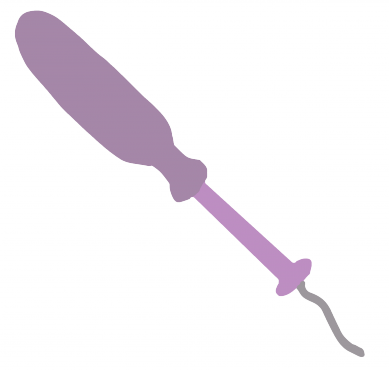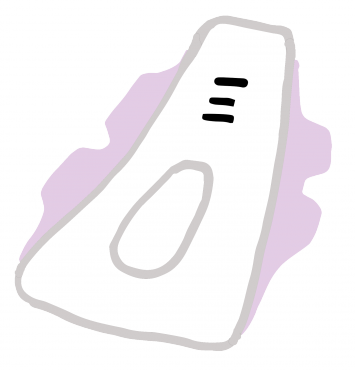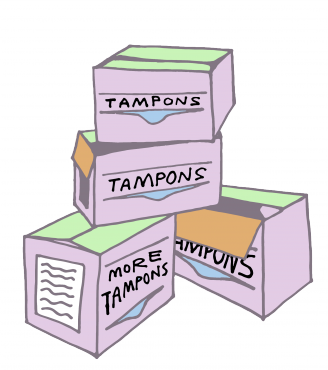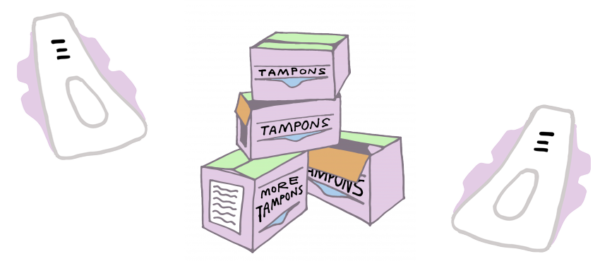“Say who you are, really say it in your life and in your work. Tell someone out there who is lost, someone not yet born, someone who won’t be born for 500 years. Your writing will be a record of your time. It can’t help but be that. But more importantly, if you’re honest about who you are, you’ll help that person be less lonely in their world because that person will recognise him or herself in you and that will give them hope . . . Give that to the world, rather than selling something to the world. Don’t allow yourself to be tricked into thinking that the way things are is the way the world must work.”
— Charlie Kaufman

On a small university campus in rural North Carolina, a female college student lurks between two cars in a parking lot. She carries books, notebooks, her purse, and a box of envelopes. When a lone person approaches, she steps out and walks ten feet in front of him, drops her box of envelopes, pretends not to notice, and continues on her way.
The big question: will the lone person return the lady’s envelopes, or let her carry on with something missing? If he’s like most other research subjects, he will return the envelopes, or else let the woman know what she dropped.
This was one part of an experiment designed by Dr. Robert Foss of West Carolina University, and his associate, Nell Crenshaw. They hoped to discover a link between embarrassment and helpfulness. In the study’s next component, the “High Embarrassment” condition, the woman dropped not a box of envelopes, but one of Tampax. This time, fewer women, and most men, did not pick up the box. In a similar study published three years earlier, one gentleman did pick the box of Tampax up, realized what it was, and quickly released it back to the pavement. Through this experiment, psychologists inferred that embarrassment often prevents people from doing the good deed they know they ought to do.
I first heard about this study in a Social Psychology class and wondered: why tampons? What made them so highly embarrassing? In theory, they aren’t embarrassing at all. Half the population bleeds at some point in their lives, and women spend about a quarter of their adult, pre-menopausal lives doing it. An average tampon-user can easily go through upwards of 9,000 white cylinders in her life. Menstruation is a normal part of many people’s existence and in no way shameful — it’s not embarrassing in the least.
So would I have picked up the lady’s Tampax? Heck no. Envelopes, yes; I like to think of myself as a helpful human being. I’ll stay late cleaning up after kids camp or a youth conference, or spend hours helping a stressed teacher mark her students’ work, but pick up tampons? Nope. I would miss an opportunity to help someone out, give her something she lost, because I find a natural part of womanhood a bit blush-worthy.
Some women celebrate their periods; I attempted to hide mine for years. Only recently, as a third-year university student, have I been able to so much as emit the p-word without lowering my voice to a mumble or, better yet, using a euphemism (which I also mumbled).
To this day, I choose public bathrooms based on how conspicuous a pad-change would be. A bathroom with no other girls is good but risky, as another girl could easily walk in. Over time, I became a bit of an expert in which of these bathrooms were the least risky, and can name a few in Cornett that are rarely used. Usually the bathroom in UVic’s library with its twenty or so stalls and constant flushing of toilets and running of taps is the best bet, except during the eerily silent summer months. If I time things right, the sound of water and toilets easily conceals that of pads ripping off fabric. And I always, always, crumple the paper wrapping while my own toilet flushes. In this way, I attempt to avoid any suspicion that I might be experiencing something that basically every other healthy woman over fourteen has experienced. Admitting to this femininity makes me feel vulnerable and embarrassed.

I’m not the only one. A high school friend would rip open all her pads’ packaging before she left the house so as to limit the crinkling sound when in a public washroom. My friend Anna didn’t realize that a multi-month first period was not normal and kept it to herself. She didn’t see the doctor until seven months of bleeding were through and, years later, still suffers from anemia because of it. Periods remain largely absent from the movies, save for a few instances when directors use taboo for humourous purposes. (Like when Viola in She’s the Man spills her tampons, causing every guy in the room to jump away as though the sterile white cylinders contain smallpox.) And let’s not forget that when scientists need to induce a “high” embarrassment condition — tampons are apparently one of their first choices. That they chose tampons over any other sensitive item says something about our society and what it most wishes to hide.
Taken too far, this hiding can (and does) have far-reaching consequences. 300 million Indian girls and women are at risk of disease because menstrual taboo prevents hygienic education from spreading. Many women in India, as well as numerous other countries, do not leave the house during their period because of the stigma connected to menstruation. This can prevent them from going to school, completing a proper education, and bridging the gender gap in legal rights and professional roles. Though in North America periods don’t (usually) prevent women from leaving the home, this embarrassment and shame can harm us in more subtle ways.
The fact of the matter is that this “highly embarrassing” condition is an integral part of many people’s lives, even if no one talks about it. For one good friend of mine, periods often mean cramps so bad she can’t move without painkillers; for an anorexic friend, periods represent a strange mix of joy and fear — they mean she’s getting healthier, but also “fatter” — and can induce panic attacks; for womankind, periods can mean everything from mood swings to bad breath, a lessened sense of smell, and a slight shift in our taste in men, among a host of other unexpected changes accompanied by the estrogen drop. Periods, whether present or absent in our lives, shape women in ways deeper than making us crave chocolate. So why don’t the movies touch on some of these issues? And why do so many women feel they must hide these experiences?
I could blame the horde of men who cringe and cover their ears when the p-word pops up. I could blame the women like me who keep their own experiences hush-hush and make it harder for others to share. I could even blame the male-dominated film industry that consistently fails at depicting realistic female characters. But I think most of us are to blame, and not just for keeping feminine issues taboo. Every time we allow embarrassment to get the better of us and prevent us from revealing who we are, we perpetuate a culture of loneliness.
Granted, not all women cringe from the p-word. Far from it. My friend Sarah once dressed up as a uterus for Halloween, using pink balloons as ovaries. One year, she baked a cake in the shape of a uterus, complete with pink icing and candies for eggs, as a joke to celebrate her tenth menarche anniversary. It amused her that this anniversary occurred when she was 20. Yes, she had her first period in grade four, and will announce it to the world with a bemused chuckle.
The biggest difference between Sarah and me is that Sarah embraces her femininity and her humanity. The reason I hate shopping for pads is because, deep down, I’m a bit sexist. I grew up in a household rampant with “that time of the month” jokes, where we laughed whenever my mom cried at a movie, and where emotions and our concept of femininity were considered weakness. I can’t speak for everyone, but for me, to admit to my period means to admit to emotionality, irrationality, and ultimately, womanhood.
I can’t pin everything on my family, though. They may have taught me to hide my period, but no one taught me another weird practice I developed long before menstruation. Unless I was desperate, I spent the entirety of grade school avoiding public bathrooms, and did my best not to let others know when I had to go. To use a toilet meant to be human and, by extension, weak. I judged kids who put their hand up in class to go to the bathroom, and I never became one of them. Because deep down, I’m a bit speciesist. Being human embarrasses me. But I wonder if every time I allow embarrassment to get the better of me and prevent me from revealing who I am—female and human and vulnerable—I perpetuate this culture of loneliness.
Social psychologist Dr. Arthur Aron of Stony Brook University devotes his studies to uncovering what makes people “click” and how deep relationships form. He helps complete strangers develop intimate bonds with each other in just an hour’s time. His secret? Vulnerability. When people, even strangers, engage in discussions about things like their family lives, hopes and dreams, or the last time they cried, they can feel closer to each other than they do with someone they’ve known for months, or even a lifetime. As soon as one person shares an embarrassing story or a deep fear, the other often becomes more open in turn, creating a vulnerable — but safe — environment where both parties can reveal themselves without worry. Researchers show that this vulnerability and openness improves everything from friendships to sex lives.
Research also shows that when blind dates are forced to discuss controversial, stigmatized subjects such as STDs and abortion, they rate the date as much more successful than those who talk about safer matters, such as the weather. It may seem dangerous to discuss such touchy topics, but it works. Not only are these topics more interesting to discuss, but they also help us learn about each other faster, and thus develop relationships more readily.
Granted, there’s a reason we stigmatize certain issues. While candor can help generate intimate relationships, it can also alienate others and make them uncomfortable. Too much information can be unsettling or even hurtful. But I wonder if when we hide ourselves out of embarrassment or fear of over-sharing, we deny the people in our lives something invaluable — the opportunity to see us for who we really are, and in doing so, see a part of them in us.
When others are vulnerable — when Sarah stays up until 4:00 a.m. to chat with me about school and life and broken relationships, and when she sings on a stage to a hundred people about being a fragile mess — her honesty makes me feel less lonely in my world. I see myself in her. If I dropped a box of tampons in front of her, I know she would not hesitate to pick it up with a reassuring smile and an embarrassing story of her own.
Perhaps because of this, strangers try to befriend Sarah wherever she goes, and she has a long list of amusing stories to tell as a result. Meanwhile, I unconsciously developed a talent for repelling people. At family reunions, cousins and uncles talk to me for about a minute before they move onto my brother, whom they’ll talk to for hours straight. It takes years for me to develop a friendship, and I honestly don’t know how I snagged the friends I have — it certainly wasn’t my doing.
This could be because I hide behind books, or that my shy-person slouch flags me as someone who doesn’t want to talk, but I wonder if part of it has to do with my lack of openness.
I don’t talk about periods, just like I don’t talk about how I cried for hours both times I failed my road test. If I like someone and want to hang out with them, I won’t say it. I won’t tell you I care, I won’t tell you I understand. And even if it means helping someone out, I refuse to pick up another’s tampons, because I allow embarrassment to rule over me. In this way, I attempt to avoid others’ suspicion that I might be experiencing thoughts and emotions that basically every other human on the planet has experienced. Ultimately, to admit to my humanity frightens me.
We at the Martlet recognize that not all women have periods, and not all people who have periods are women. However, as this feature is a reflective personal narrative, its scope is limited to the experiences of the author.
Graphics by Austin Willis, Design Director







